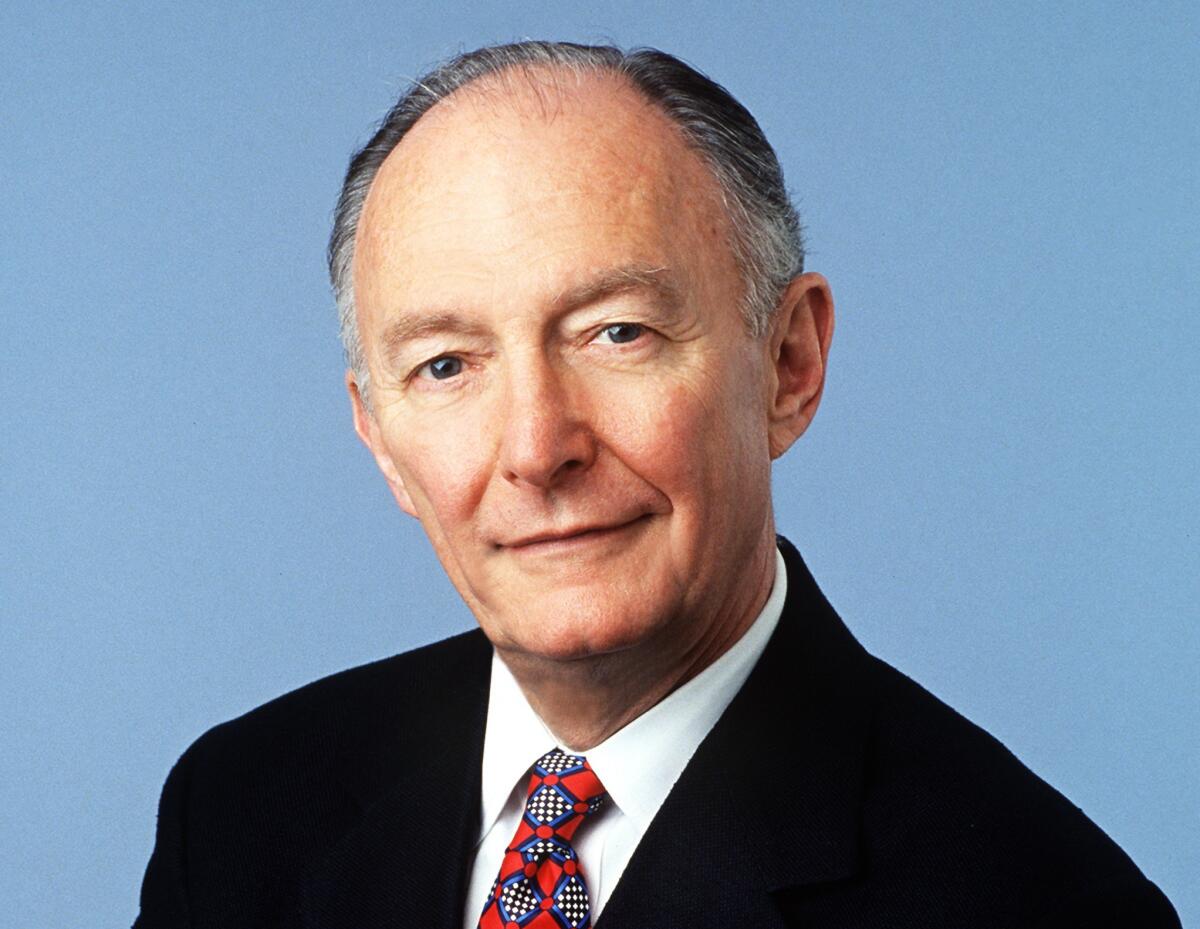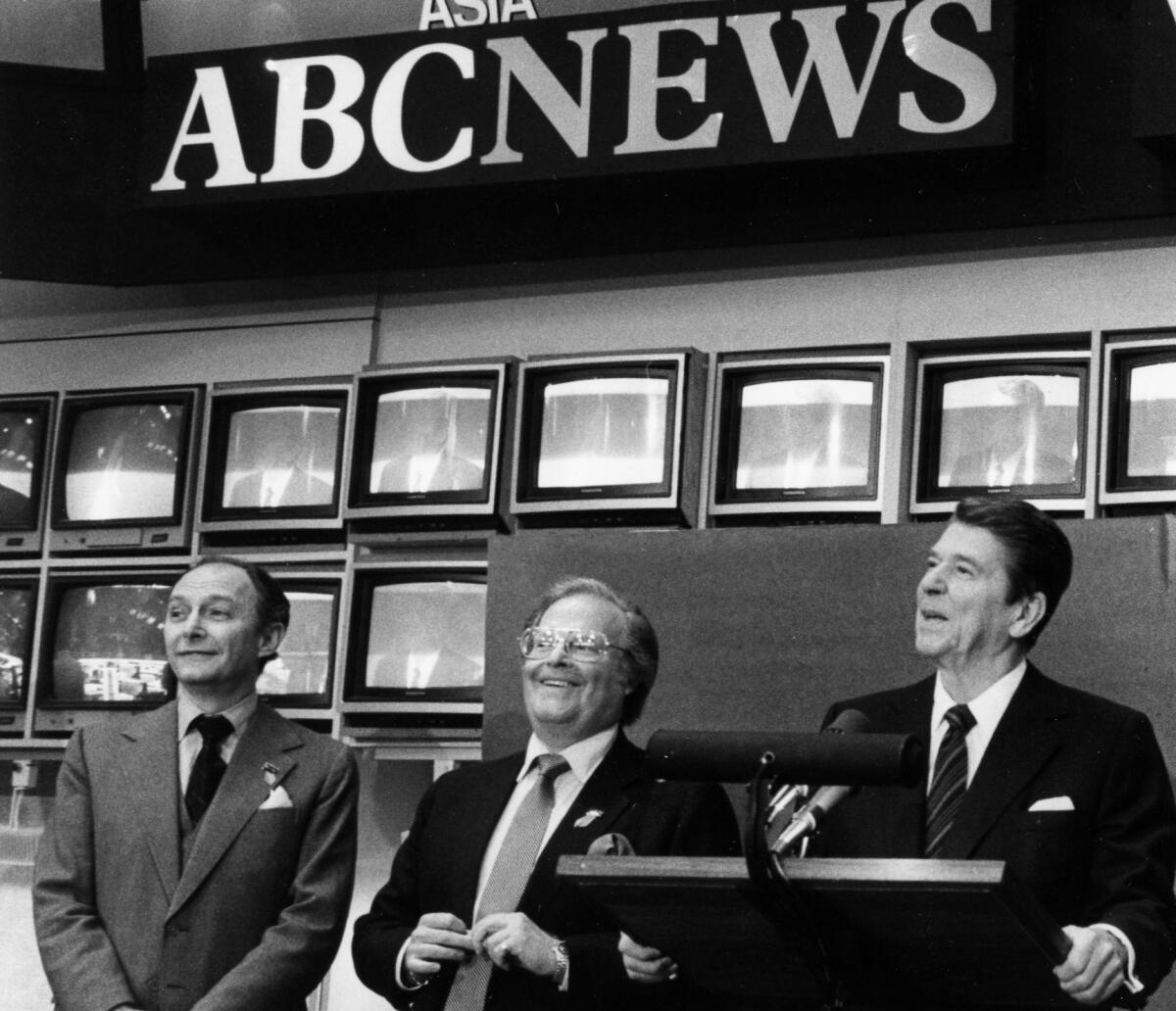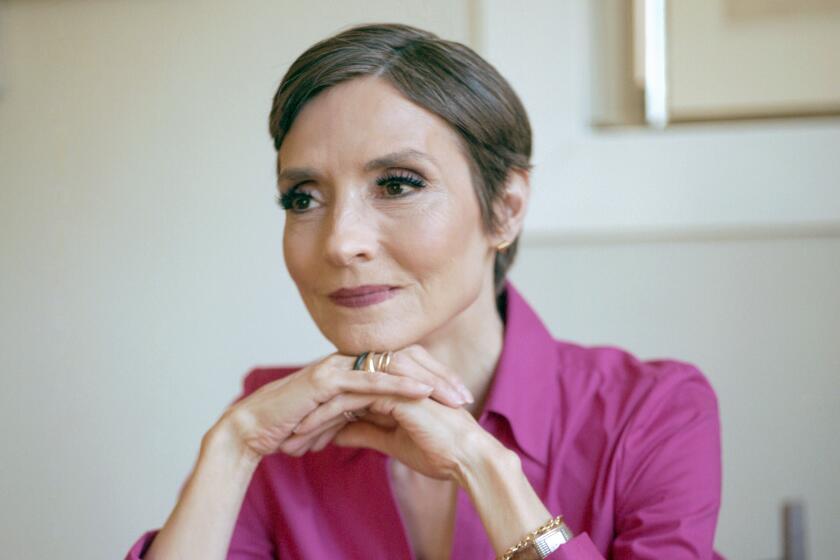Richard Wald, veteran TV news executive for ABC and NBC, dies at 92

Richard Wald, a longtime journalist and TV executive who guided the programs and anchors that helped shape network news over several decades, died Friday at 92.
Wald had been at Montefiore New Rochelle Hospital in Westchester, N.Y. since suffering a massive stroke Sunday night. He died at the hospital Friday morning, his son Jonathan said.
Wald was a print journalist who moved into television in the 1970s. He spent the bulk of this TV career at ABC News working alongside the division’s high-profile chief Roone Arledge. Together they transformed ABC News from also-ran status to being the dominant player in TV news through the 1980s and 1990s.
During Wald’s ABC run from 1977 to 1999, Peter Jennings emerged as the most-watched evening news anchor and the network’s special event coverage regularly topped the competition in the Nielsen ratings.
The network also launched two popular newsmagazine shows during the period, “20/20,” which still airs Friday nights, and “PrimeTime Live,” and poached a number of major TV news stars, including David Brinkley from NBC and Diane Sawyer from CBS.
Previous to his ABC years, Wald was president of NBC News where he managed a key transition for the network’s morning franchise “Today.” Wald hired a 24-year-old Jane Pauley to replace Barbara Walters, who had departed for ABC, and paired her with Tom Brokaw, then an up-and-coming Washington correspondent.

At ABC News, Wald oversaw the launch of “Nightline,” the nightly news program first anchored by Ted Koppel. The program, which Wald named, evolved out of ABC’s nightly special reports on the capture of 66 American citizens at the U.S. Embassy in Iran by militants. “Nightline” was the first expansion of nightly news programming by any network since evening newscasts went from 15 minutes to a half-hour in the early 1960s.
Catherine Herridge’s investigations led to Purple Hearts and medical benefits for military veterans — while she also fights to keep her son healthy.
Wald was attuned to the TV audience’s growing appetite for news and information. In a speech at the 1976 meeting of the National Assn. of Broadcasters, Wald casually predicted the advent of 24-hour news services. Four years later, Ted Turner launched CNN on cable.
Wald was also known for being the model for Max Schumacher , the news president of the fictional UBS Network played by actor William Holden in the 1976 feature film “Network.” Screenwriter Paddy Chayefsky tailed Wald for several days ahead of creating the character.
After leaving ABC in 1999, Wald taught journalism at Columbia University where he became the first Fred W. Friendly Professor of Professional Practice in Media Society.
Richard Charles Wald was born in New York City on March 19, 1930, the son of Joe Wald, a garment industry manager and factory owner, and Lily Wald.
Wald attended Columbia College, where he was on the editorial board of the Spectator, the student-run newspaper. He shared an off-campus apartment with Arledge, who was also a Columbia student.
Wald’s professional career began at the New York Herald Tribune, where he was a stringer. He joined the paper full time as a foreign correspondent and eventually worked his way up to managing editor.
The Herald Tribune was known as a writer’s newspaper, and Wald worked closely with the progenitors of the “new journalism” style of the 1960s. The publication’s staff included Jimmy Breslin, Tom Wolfe and Gail Sheehy, who brought a narrative, novelistic approach to their writing.
Wald joined NBC News in 1967, after the paper, then known as the World Journal Tribune, folded. “I didn’t leave newspapers,” he was known to say. “Newspapers left me.”
Wald is survived by three children, Matthew, Elizabeth and Jonathan, a veteran news producer and executive for NBC and CNN. Wald is also survived by seven grandchildren and one great grandchild. His wife of 67 years, Edith, died in December.
More to Read
Inside the business of entertainment
The Wide Shot brings you news, analysis and insights on everything from streaming wars to production — and what it all means for the future.
You may occasionally receive promotional content from the Los Angeles Times.












